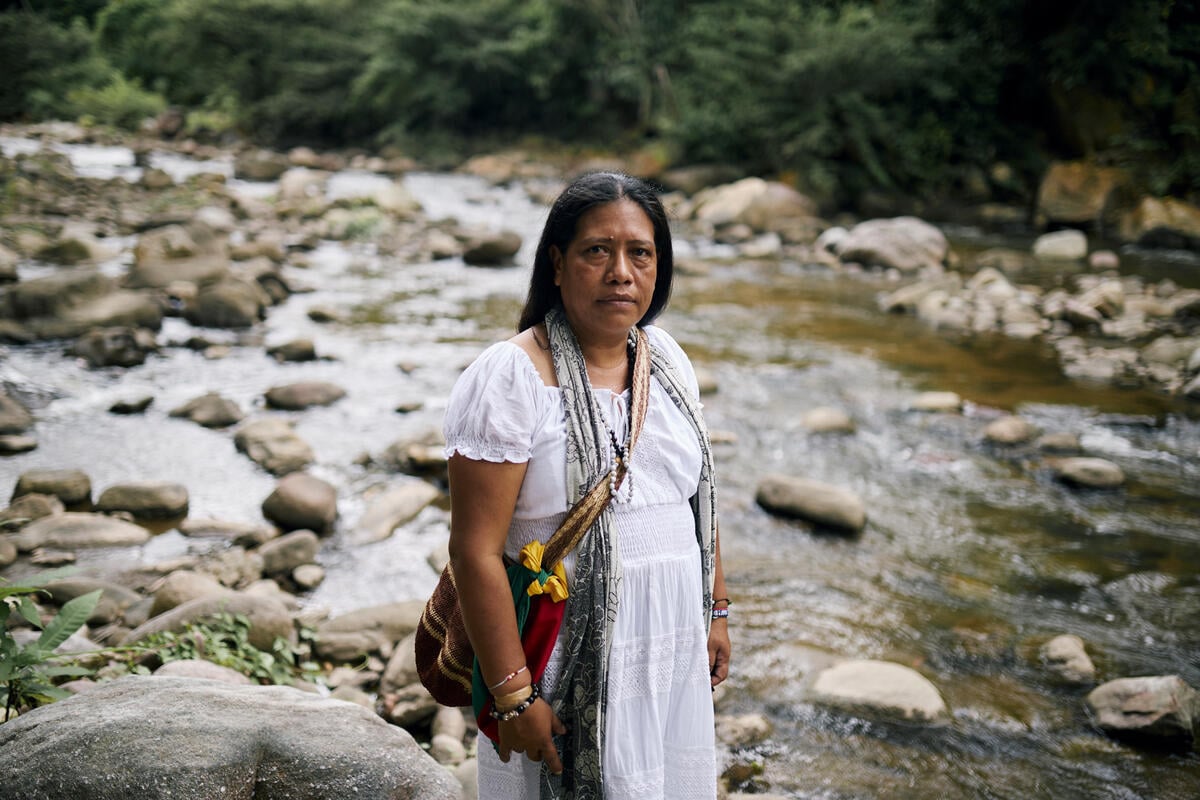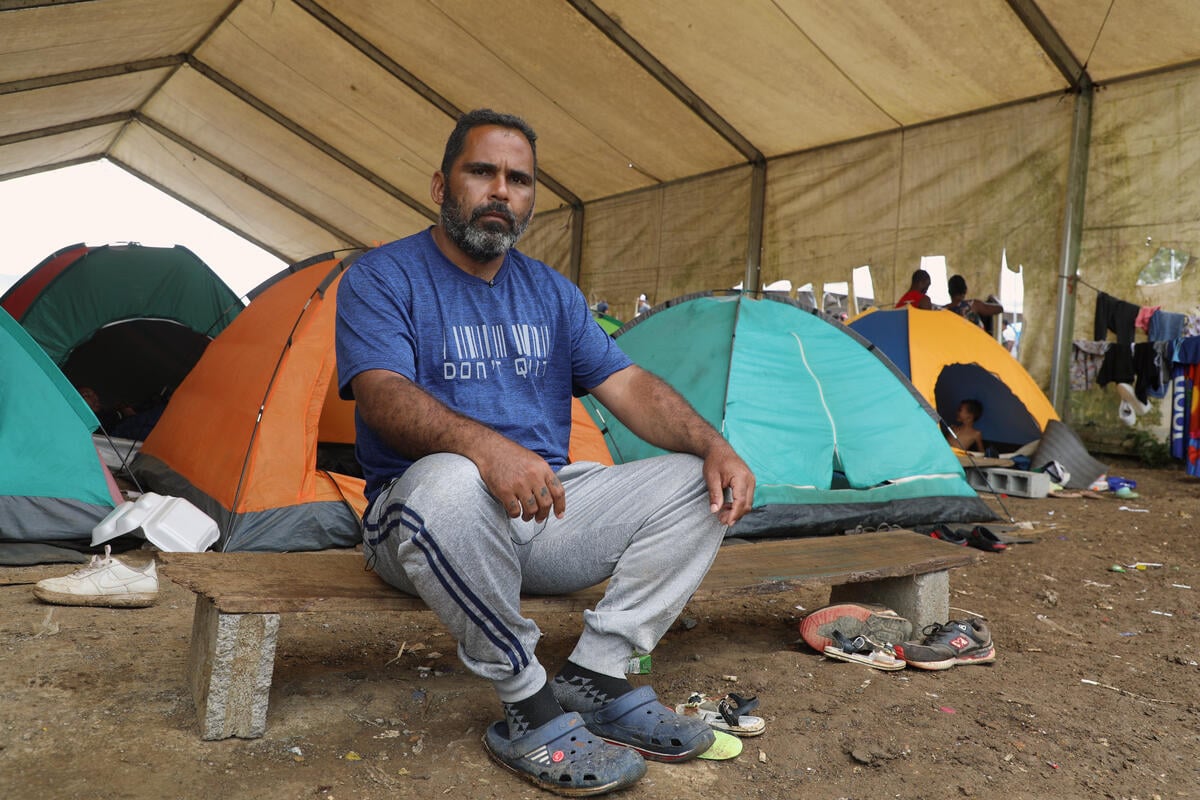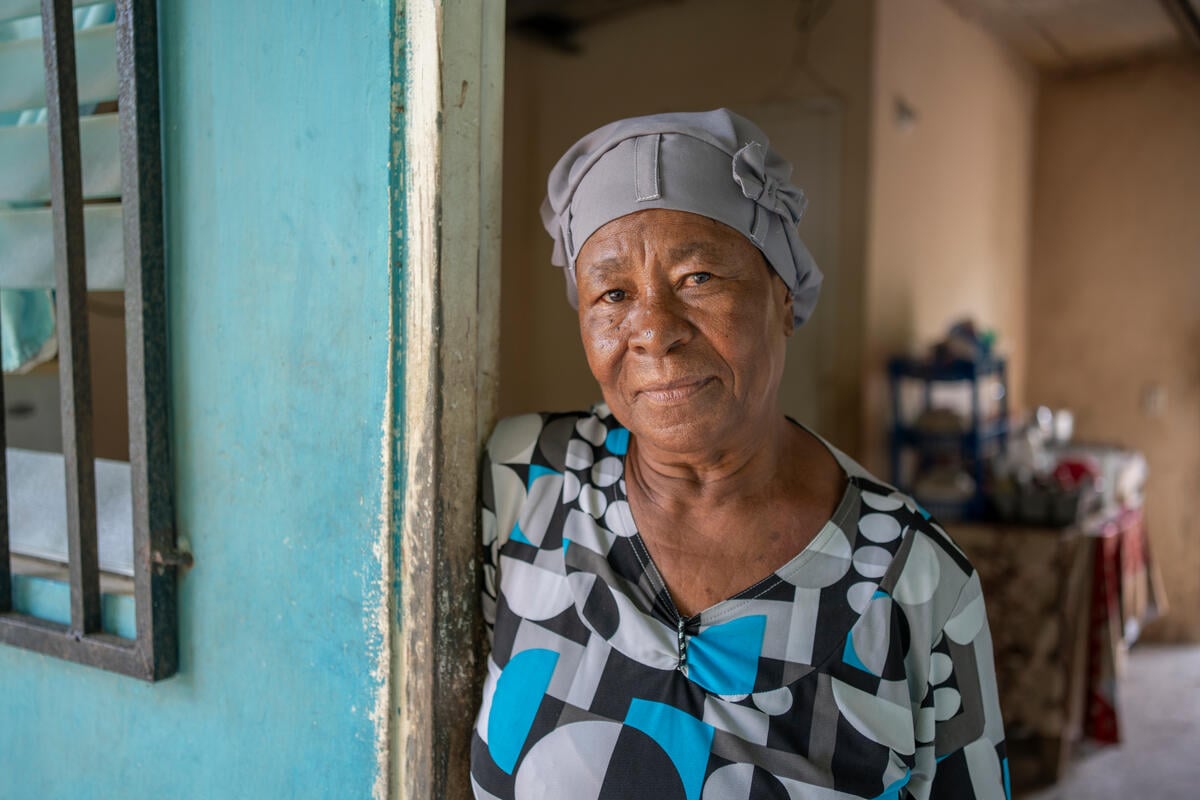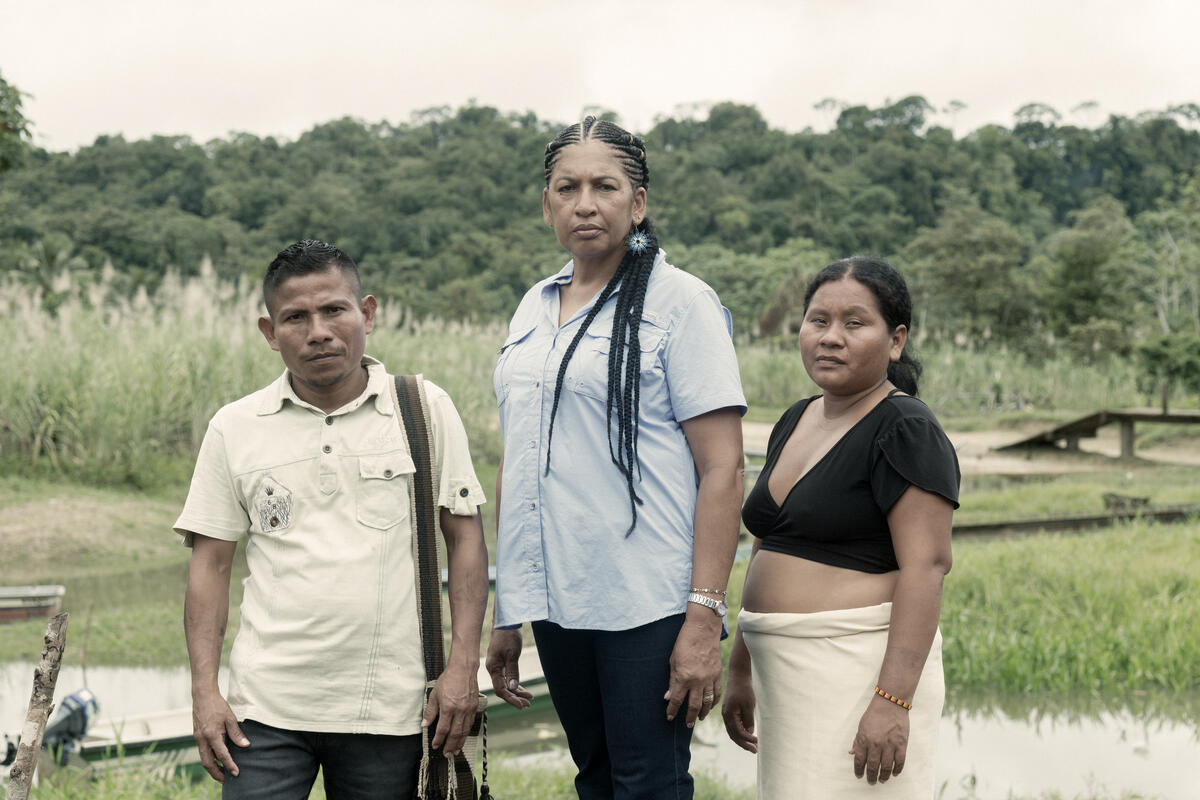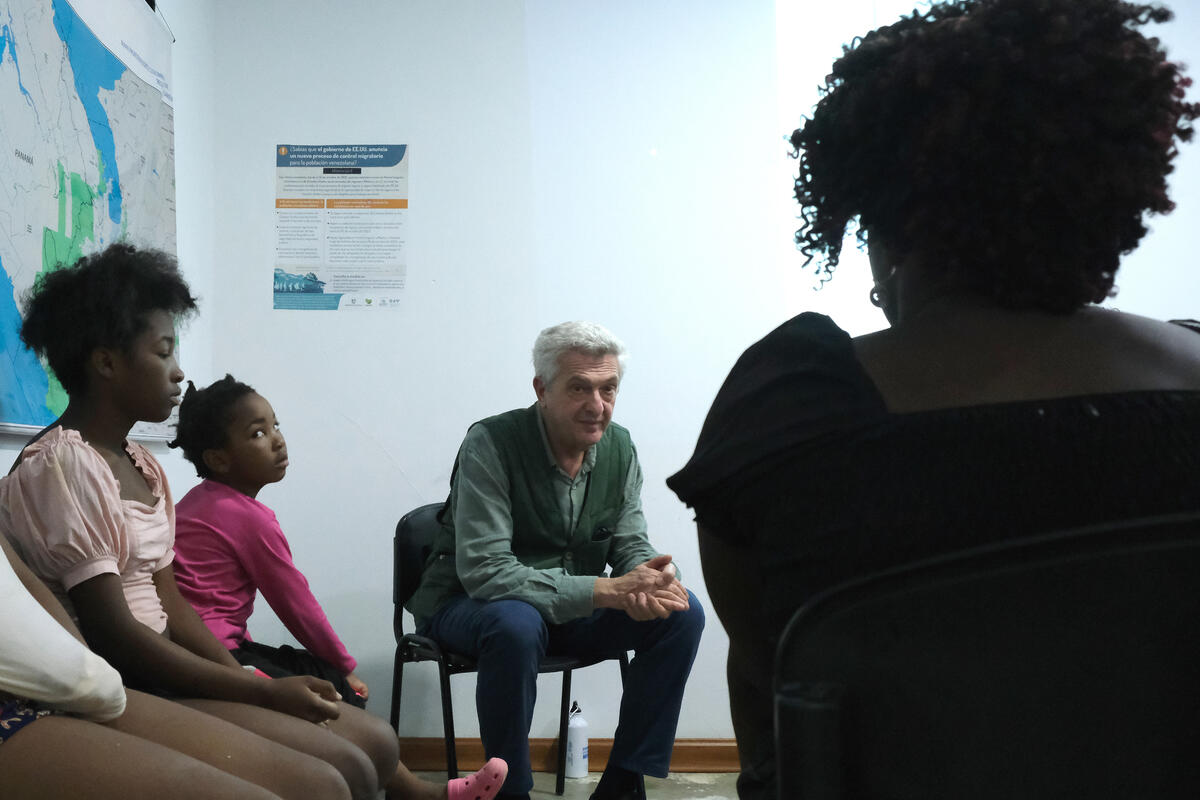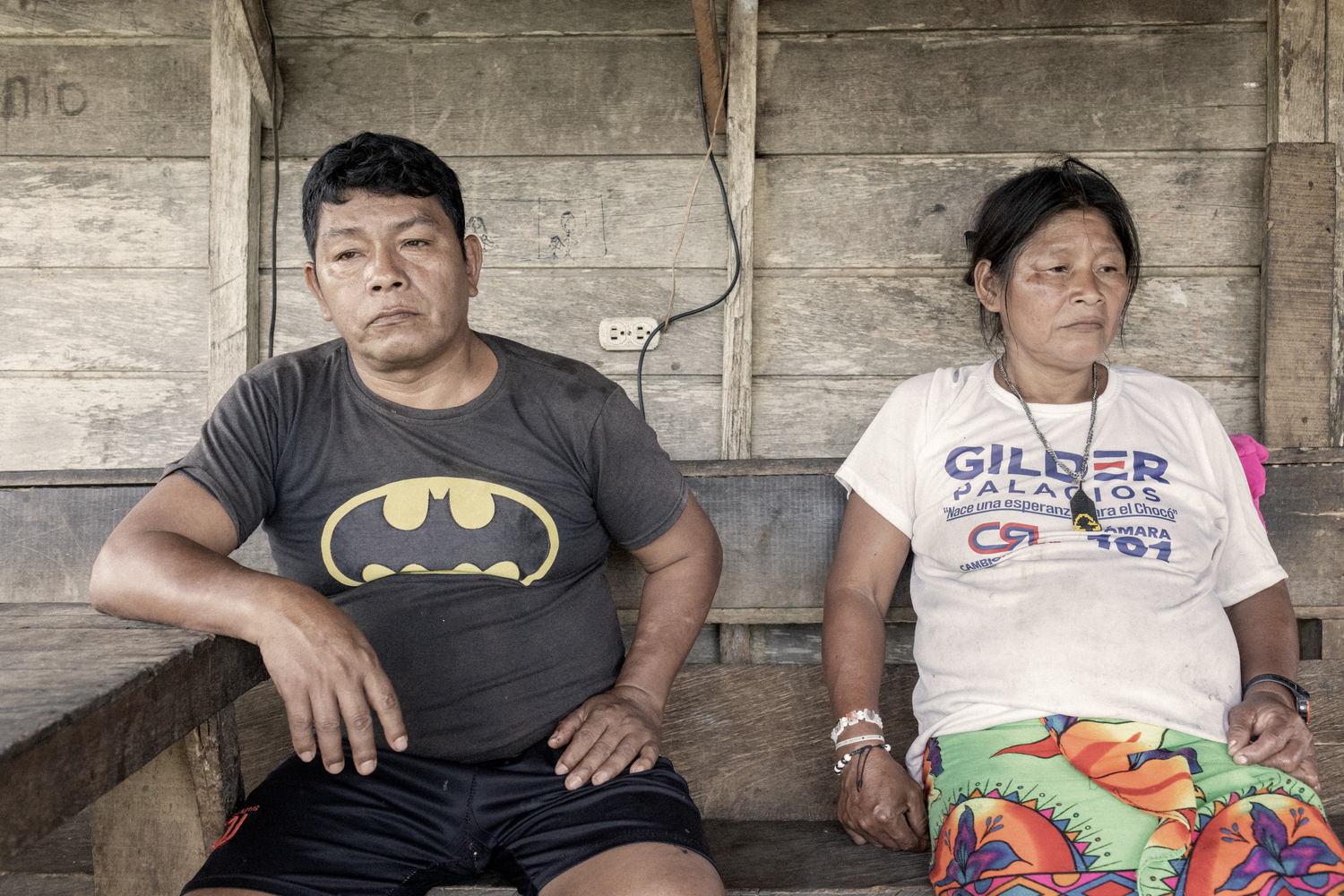Growing concern over Colombia's indigenous people
Growing concern over Colombia's indigenous people
A spate of suicides by indigenous young people in north-western Colombia is causing grave concern to UNHCR and indigenous organizations. In just over one year, 17 young people from the Embera and Wounaan indigenous communities, aged between 12 and 24, committed suicide or attempted to kill themselves.
According to the local CAMIZBA indigenous organization, indigenous young people are "losing the will to live" because of the impact of the Colombian conflict on their communities. In recent months, thousands of indigenous people have been displaced by massacres or fighting between irregular armed groups in different parts of Colombia. At the same time, indigenous leaders have disappeared, been threatened or killed. According to the National Indigenous Organization of Colombia (ONIC), a UNHCR partner, virtually all of the country's more than 80 indigenous groups are now threatened by the conflict.
Responding to a request for help from the Embera and Wounaan indigenous communities of the lower Atrato region, UNHCR staff visited the village of Union-Embera-Katio, one of those most affected by the problem. In a bid to prevent further suicides, UNHCR is starting a project to provide culturally-appropriate psycho-social support and advice to young people and their families, as well as cultural activities to strengthen indigenous identity and traditional values in Union-Embera-Katio and eight other communities belonging to the Embera, Wounaan, Katio and Chami ethnic groups.
The project, implemented by CAMIZBA, will rely on indigenous spiritual leaders known as "jaibanas" (pr. Hi-bah-NAS) who will visit indigenous communities to assess the causes of the high rate of suicide among young people, provide psycho-social counselling in their own languages to the families and communities affected and work to strengthen traditional values. In addition, these communities will benefit from UNHCR's nationwide projects to provide documentation to communities affected by the conflict and to train teachers to respond to the needs of displaced children.
For indigenous people, displacement often results in the permanent loss of their language and culture as a consequence of the breakdown of their traditional social patterns and political structures. The pressure on the displaced indigenous communities or those at risk increases social tension and adversely affects indigenous identity and self-esteem, especially among young people, who experience frustration and lack of hope for the future. Apart from the risk of depression and suicide, indigenous elders are concerned that this situation makes indigenous youth vulnerable to recruitment by irregular armed groups.
In a separate development, five indigenous Embera communities that were forced to abandon their ancestral lands in March due to clashes between the Colombian army and irregular armed groups have decided to return to their villages. They say they will return even though security conditions are not suitable because of the continued presence of irregular armed groups.
Representatives of more than 1,200 Emberas gathered in the municipality of Bojaya between June 16-19 and decided to return to their homes and land. Although the authorities have provided basic emergency assistance, the displaced Embera complain about the lack of their traditional foodstuffs and inadequate health services in the receiving communities, whose populations have doubled with the arrival of the displaced people.
Upon request, UNHCR has agreed to participate on a visit to each of the communities in order to assess conditions for the return. Our staff will also make regular monitoring visits to the communities over a three-month period, and help organise workshops on human rights, international humanitarian law and the rights of internally displaced people.

